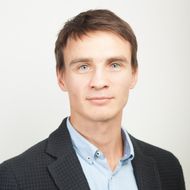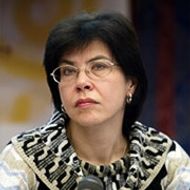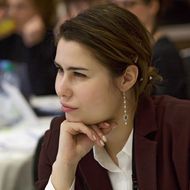Economic Crises Affect People’s Attitudes to Inequality

Inequality based on income, geography, gender, age, class and religion widens social gaps both within and between countries. During the XXIII Yasin (April) International Conference, experts discussed which dimensions of inequality have become especially important in the wake of the pandemic and the evolving economic crisis, and also examined how much more women work than men.
The round table ‘Social and Economic Inequality: Current Research Agenda’ was held as part of the XXIII Yasin (April) International Academic Conference. The event was organised by the Human Capital Multidisciplinary Research Centre.
Vasiliy Anikin, Assistant Professor of the Faculty of Economic Sciences and Senior Research Fellow of the Institute of Social Policy, HSE University, spoke about studies dedicated to job quality, particularly in terms of the criteria and tools for evaluating jobs and the key attributes of good and bad jobs.

Vasiliy Anikin
Good jobs are those with high salaries, particularly in sectors demonstrating economic growth. They offer high levels of mobility, good prospects, extra generous remuneration and allow employees to manage their careers. Stability is a key marker of a good job.
Bad jobs are low-paid, have little to no bonuses or promotion opportunities, and come with a high risk of redundancy. More often than not, such jobs are dangerous, laborious, and provide only unstable employment and occasional earnings.
Tatyana Maleva, Director of the Institute for Social Analysis and Forecasting, RANEPA, spoke about income inequality. Russia demonstrates high levels of income inequality compared with other countries. Moreover, Russia is characterised by large variations in this metric across different regions. However, absolute figures are not as significant as people's assessment and perception of inequality. People usually do not accurately assess the level of inequality in their country, Tatyana Maleva said.
For example, sociological studies show that US residents significantly exaggerate the growth of inequality since 1960. Only 14% of Spanish citizens correctly assess their place on the income distribution scale. People are also more likely to overestimate the share of wealth held by the top 1%. In particular, people in the UK believe that the top 1% own 59% of the country's wealth, when in fact this percentage is as low as 23%.
It is the perception of inequality, rather than its actual depth, that correlates more strongly with citizens' requests for governments to reduce inequality in many countries. People with low incomes, as well as those in older age cohorts, are more likely to expect the government to take action in this area. Moreover, people's attitudes towards income inequality differ depending on the current stage of economic crisis and growth.

Tatyana Maleva
‘When the main task is to overcome the crisis and the associated deprivations, inequality ceases to be as much of an irritant as during time of economic growth, as the mission to survive becomes more important, overshadowing issues of social justice. It is quite clear that the Russian Federation is going to face a new crisis. Therefore, I think we should go back to studying this issue to understand how different social groups will deal with this crisis and what their attitudes will be to the fact that other groups will be dealing with this crisis differently.’
Maria Nagernyak, Director of the Head Office of the Human Capital Multidisciplinary Research Center, HSE University, spoke about gender inequality in the sphere of domestic labour. According to her, researchers often rely on time budget data when analysing this issue.
Researchers notice large gaps in the amount of time spent by men and women on all kinds of housework. The size of the gap varies greatly from country to country. For example, in some OECD countries, women spend five to six times more time than men on household chores, while in Russia they spend twice as much.
On average, women in Russia spend 16.5 hours more than men on daily chores per week. At the same time, men spend more time on paid work. If adjusted, these figures show that women usually work 8.5 hours longer.
The lion's share of housework is shouldered by women. The most common and time-consuming task is cooking. While women usually combine quite a few types of housework, men tend to take on only one chore.

Maria Nagernyak
‘Longer-term studies show a decrease in this gender gap, especially in terms of looking after children. Men are getting more and more involved in this activity, and this is a worldwide trend.’
Professor Louis Chauvel (University of Luxembourg) noted that this agenda is important and necessary for the development of social and economic policies both nationally and internationally. In recent years, there has been a notable decrease in a number of parameters, but regrettably, there is also cause for pessimism.
‘Gender inequality has been decreasing, but now it is starting to grow again. This is true of Russia and Europe, in particular, France and China, which 30 years ago was quite balanced in this sense. Over the past 20 years, the situation in many countries has changed dramatically, and our analysis will be very helpful in understanding the global dynamics of inequality in the world,' Prof. Chauvel explained.
See also:
24 Countries Represented at 25th Yasin International Academic Conference Held by HSE University
The Programme Committee of the 25th Yasin (April) International Academic Conference on Economic and Social Development has summed up the initial results. In 2025, 1,384 people from 24 countries and 29 Russian regions participated in the conference, with 335 of them delivering presentations.
Stuck in the Net: How Much Time Children Spend Online
On average, a schoolchild spends 48 hours a week on studies—equivalent to a six-day working week for an adult. This was highlighted by experts at the round table ‘Domains of Children’s Well-Being Evaluation for Human Potential and Evidence-Based Social Policy Development,’ held as part of the 25th Yasin (April) International Academic Conference.
Russian and Chinese Scholars Share Experience of Transformation of Doctoral Education
The Russian and Chinese postgraduate education systems originally borrowed their institutional frameworks from the Soviet Union. However, in the 21st century, they have evolved along different paths. While key performance indicators for postgraduate programmes in Russia are declining, China is seeing a rapid increase in the number of postgraduate students. These contrasting trajectories and the reforms undertaken in each country in recent decades were the focus of a roundtable discussion held as part of the 25th Yasin (April) International Academic Conference.
Nobel Laureate Proposes Solution to Markov Equilibrium Problem
In dynamic games, a Markov equilibrium involves strategies that guide players' behaviour based on the current state of the game, rather than its entire history. This approach is effective when players have access to complete information. But when uncertainty arises in the game—for instance, when players are unsure of who they are dealing with—this approach can become problematic. Eric Maskin, Nobel Laureate in Economics and Professor at Harvard University, addressed this issue in a paper presented at the XXV Yasin (April) International Academic Conference on Economic and Social Development held at HSE University from April 15 to 18, 2025.
‘The World Is Becoming More Complex and Less Predictable’: What Scientists Say about the Future
The future is now more difficult for researchers to forecast, and events that are hard to predict are playing an increasingly significant role. But there is good news too: scientists are confident that humanity will adapt to any changes. This was the focus of discussion at the International Symposium ‘Foresight in a Rapidly Changing World,’ which took place as part of the 25th Yasin (April) International Academic Conference.
Fragmentation and Bloc Formation: How the Global Economy is Changing
Sergey Dubinin, former head of the Bank of Russia and Professor of Finance and Credit at the Faculty of Economics at Moscow State University, has delivered an honorary address at the XXV Yasin (April) International Academic Conference. He spoke about the transformation of the global monetary and financial system, as well as the Russian economy.
More Children, More Happiness: HSE Experts Study Impact of Number of Children on Russians' Assessment of Happiness
Russians with children feel happier than those without children. At the same time, the number of children influences the assessment of happiness: the more children Russians have, the happier they feel. These conclusions were outlined inthe report ‘More Children, More Happiness: The Impact of the Number of Children on Russians’ Assessment of Happiness,’ presented at the XXV Yasin (April) International Academic Conference on Economic and Social Development, held on April 15–18 at HSE University. The study was conducted by Elena Churilova, Senior Research Fellow, and Dmitry Jdanov, Chief Research Fellowat HSE International Laboratory for Population and Health.
HSE Expands Cooperation with Gulf Countries
HSE University and the Centre for International Policy Research (Qatar) have agreed to collaborate in the field of social sciences, with plans for joint research, academic exchanges, and regular expert engagement. The agreement was signed during the roundtable ‘State Capacity and State Resilience in the Global South,’ held as part of the 25th Yasin (April) International Academic Conference at HSE University.
‘We Grow Old before We Become Rich’: How BRICS Countries Can Achieve Economic Growth
Due to population aging, many countries aiming for economic prosperity have limited time left to undergo economic transformation, according to the honorary report Narratives Versus Reality on Employment and Demography: How Undermining Institutions Can Push Countries Out of the ‘Narrow Corridor’ by Santosh Mehrotra of the University of Bath. The report was presented at the XXV Yasin (April) International Academic Conference.
XXV Yasin (April) Academic Conference Kicks Off at HSE University
The anniversary 25th Yasin (April) International Academic Conference on Economic and Social Development will take place from April 15 to 18. This year, over a thousand applications were submitted to present at the conference, of which the Programme Committee selected 381 of the best research papers in their respective fields.


